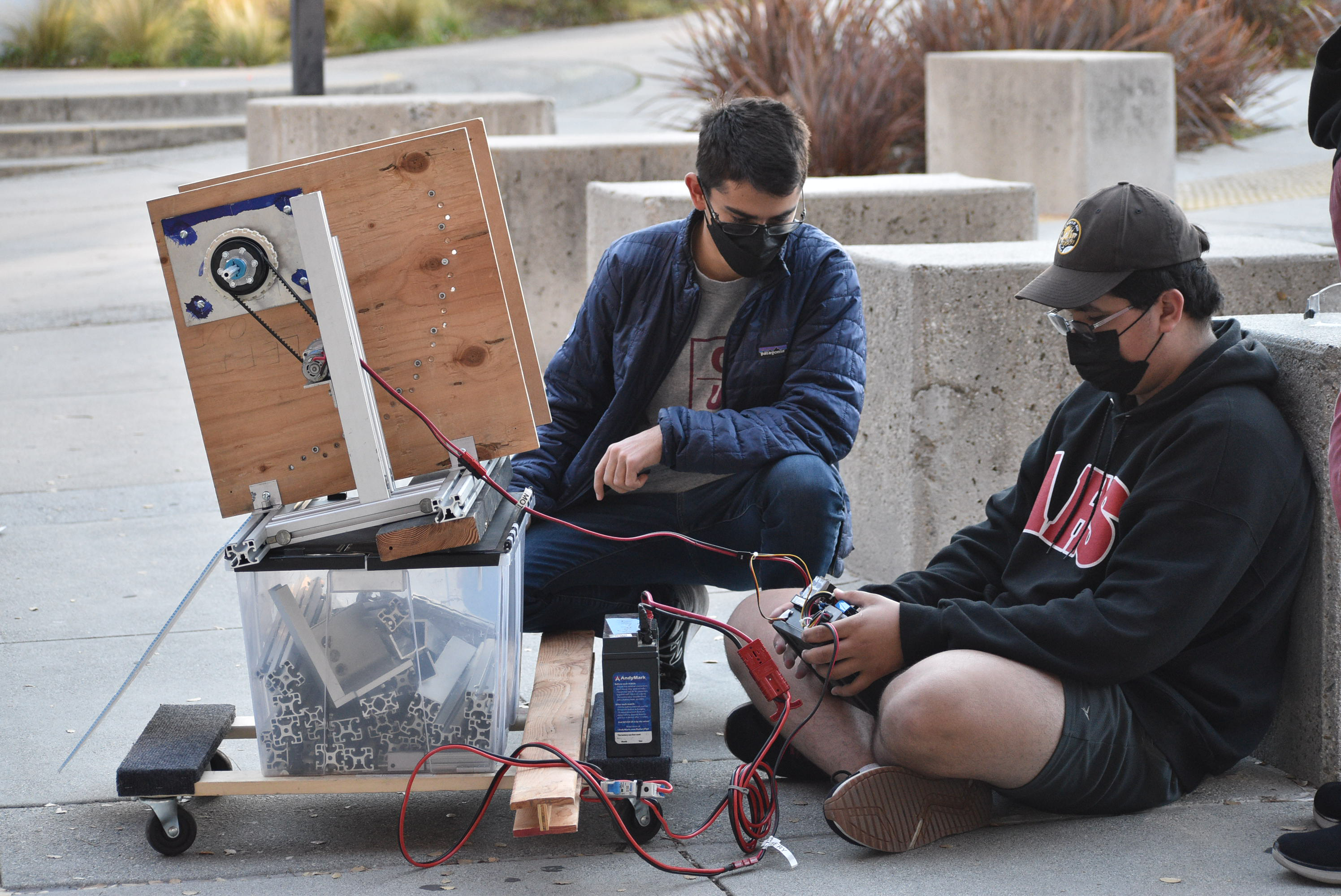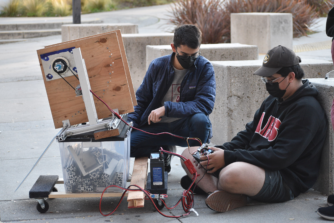

On Jan. 9, the Aragon robotics team competed against other robotics teams from across northern California in the Robotics First Tech Challenge Qualifier. Due to the event being moved online, teams had a week to prepare and record their robots participating in multiple challenges. On the day of the competition, after teams submitted their videos, each team joined a 30-minute Zoom call throughout the day to see how well the panel of judges thought their robots performed.
The team awarded the most points in the qualifier was the Vulcan robotics team, which has a few Aragon students as members. The Vulcan robotics team also won the Inspire Award, the highest honor given at the event.
Junior David Sai explained that virtual competitions are very different from in-person ones, but they can still be really fun for those involved.
“It was a great experience and a fun event to plan,” Sai said. “Although many things did fall through last minute due to things being moved online, I’m still really glad we were able to host the competition at least in a virtual format.”
Due to the rise in COVID-19 cases after winter break, the qualifier had to be held in a virtual format instead of indoors. This caused a lot of the competition’s processes to change. Usually the in-person FTC Qualifier would last the entire day, from 8 a.m. to 6 p.m.
“My favorite part about planning the event [was] being able to work with my team and Mr. Sipple”
At the competition, teams have their robots inspected to ensure they are safe to compete. Then, teams undergo judging where they give a presentation about their team and robot design process to a judging panel. The judges are selected by the team that is hosting the qualifier and are usually members of the community who are interested in judging at the event. Once teams have finished inspection and judging, they spend the rest of the day in matches.
“[Matches are] two alliances of two teams, four teams competing at a time,” said senior Iva Goel. “Then you’re working together, you have your own team rank and then you move up to semi-finals if you’re ranked really high.”
Once at semi-finals, teams pick which other team they will be paired up with and move on to finals. At the end of the day, there is an award ceremony. Teams that receive the most points out of their matches and teams that did well in judging receive the awards. In the virtual FTC Qualifier, teams were unable to compete in alliances against each other. Instead, during the week before the competition, teams put their robots through the specific challenges and recorded how well their robots did. Teams then submitted their point values to the judges and waited to see who accumulated the most points overall.
Goel shared that, although the competition had to be moved online, it was still fun being able to plan in the week leading up to it.
“My favorite parts about planning the event were being able to work with my team and then also with Mr. Sipple … and a couple of our other mentors,” Goel said. “Even though we were scrambling towards the end with the quick change, I think it was still really fun to do it for the first time because this was our first time attempting to hold a qualifier [in a while].”
“It has been over ten years since Aragon has hosted a qualifier”
It was rare for robotics qualifiers to be hosted at Aragon, making it even more unfortunate that the event had to be moved online.
“It has been over ten years since Aragon has hosted a robotics qualifier, so this was to be our first hosted event in a long time,” said Robotics adviser Craig Sipple. “It was disappointing to see the in-person event canceled. However, the health and safety of our community comes first.”
Although teams were unable to interact with each other in person, it was still a way for robotics teams from across northern California to come together and compete.
